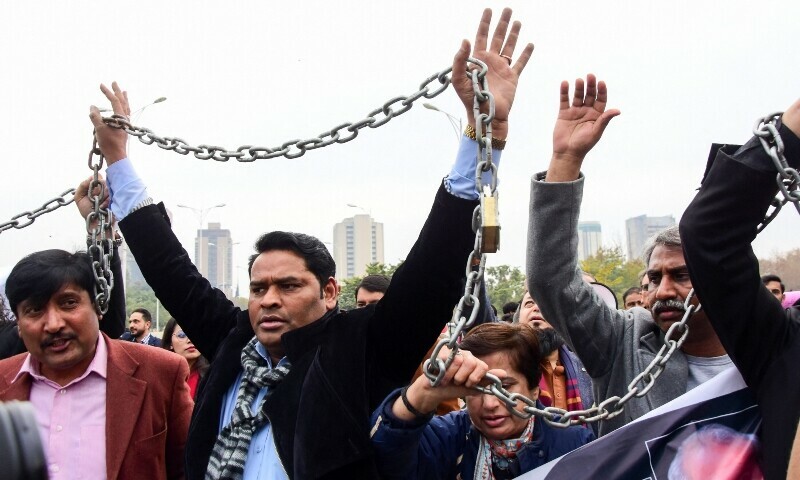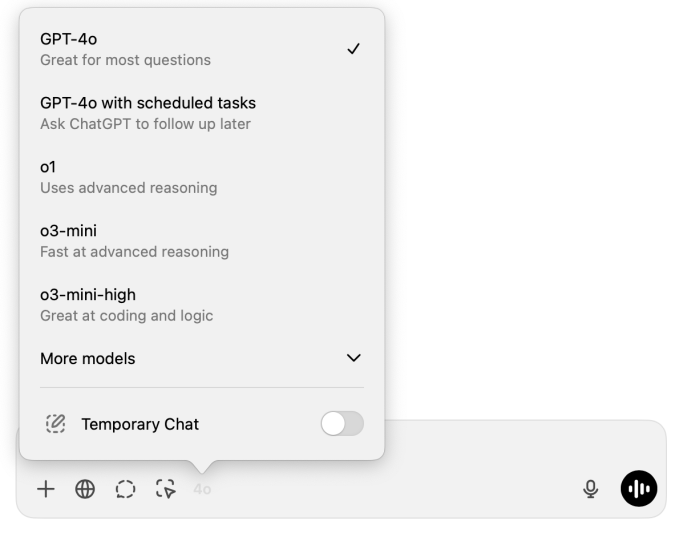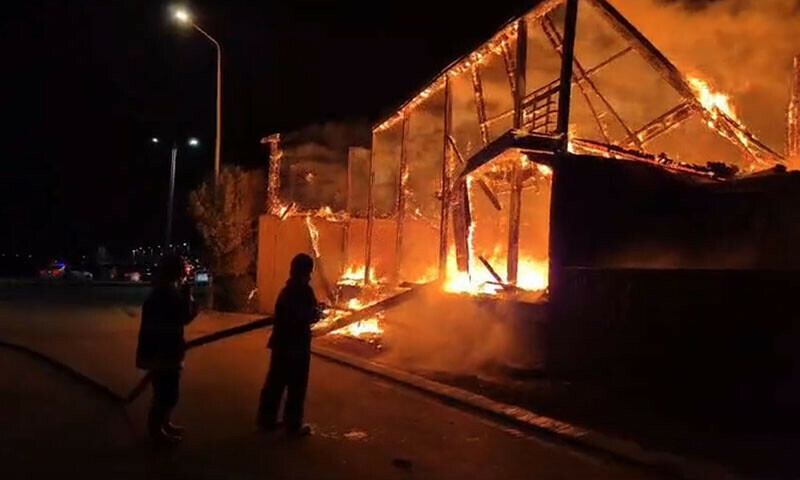• Reporters Without Borders calls recent amendments ‘dangerous tool in hands of authorities’
• IHC asks attorney general to help court with journalists’ petition
• Journalists to observe ‘hunger strike’ today across the country against changes to cybercrime law
ISLAMABAD: The recent amendments to the Prevention of Electronic Crimes Act (Peca) will stifle free speech instead of combatting disinformation as claimed by the government, Reporters Without Borders (RSF) said in a statement on Tuesday.
The global media watchdog has urged the government to repeal the amendments, adding that the Peca, passed by parliament in 2016, already posed a threat to journalists, and these amendments further exacerbated those dangers.
Peca had already been used to arrest dozens of journalists who criticised the government, the statement said, adding that now, its “repressive role” has been strengthened.
“Under the guise of combating disinformation, Pakistan is taking censorship to a new level,” said the statement.
The definition of false and prohibited content provided in these amendments is “vague” and gives authorities “a formidable legal weapon for blocking information”.
Célia Mercier, the head of RSF South Asia Desk, said prohibited content includes publications “against the ideology of Pakistan” or which “coerce or intimidate” people or that contain “aspersions” against any person, including members of the judiciary, armed forces and parliament.
Furthermore, the content will be considered illegal if it is “known to be fake or false or there exist sufficient reasons to believe that the same may be fake or false beyond a reasonable doubt”, she added while citing provisions from the amended law.
The punishment for disseminating false or prohibited content—which is “very vaguely defined”— is three years in prison, and the suspect can be arrested without a warrant.
Moreover, the law allows anyone to file a complaint, even if they were not directly affected by the content.
The RSF also raised questions over the new “government-controlled regulatory authority” to be set up under the law.
The regulatory authority, whose members would be directly ap-pointed by the government, will replace the Pakistan Telecommunication Authority.
RSF urged the government to repeal Peca and its amendments, which it called a “dangerous tool in the hands of the authorities” that can be used to “silence critics and control information.”
“The people’s right to inform, be informed and have access to diverse sources of information must be respected.”
Ms Mercier added that journalists across Pakistan have been protesting against these amendments.
Several challenges have also been filed against the amendments in courts across the country, she added.
IHC hearing
Meanwhile, the petitions filed by news anchors and a faction of the Pakistan Federal Union of Journalists (PFUJ) in the Islamabad High Court (IHC) were heard by Justice Inaam Ameen Minhas on Tuesday.
The court issued a notice to the attorney general for Pakistan for assistance.
During the hearing, the petitioner’s counsel, Imran Shafiq Advocate, argued that amendments were passed in such haste that even the numbering of its clauses was incorrect.
He pointed out multiple errors, including contradictory definitions of the applicant and highlighted that the authority established under Peca already exists under the Pakistan Electronic Media Regulatory Authority (Pemra) Ordinance, 2002.
Another lawyer, Riasat Ali Azad, contended that Peca violates articles 19 and 19A of the Constitution, which safeguard freedom of expression and the right to information.
The court questioned whether the publication of fake news should be regulated, acknowledging the challenges posed by misinformation.
The petitioner’s counsel responded that the law was enacted without consulting stakeholders.
After the amended law, any appeal against the decision of the Social Media Protection Tribunals — to be set up after the amendments — can only be filed in the Supreme Court.
This provision “bypasses standard legal procedures”, the lawyer argued.
The counsel also argued that journalists rely on sources for news, and if they are restricted from accessing information, their work would be reduced to reporting weather updates only.
Journalists’ protest
Meanwhile, the Pakistan Federal Union of Journalists (PFUJ) has announced a countrywide “hunger strike” to protest the recent amendments to the cybercrime law from Feb 12 to 14.
The Karachi Union of Journalists (KUJ) said it will set up camp at the Karachi Press Club from Wednesday to protest the Peca amendments.
The Rawalpindi-Islamabad Union of Journalists (RIUJ) will also hold a hunger strike camp at the National Press Club (NPC) from 12-6 pm on the same days. Similar camps will also be set up in Lahore, Peshawar, Quetta, Multan etc.
Imran Ayub in Karachi and Malik Asad and Kalbe Ali in Islamabad also contributed to this report
Published in Dawn, February 12th, 2025





Leave a Reply